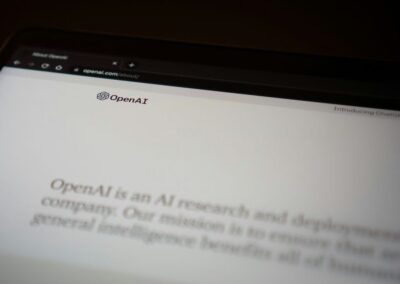Let’s Examine How AI Could Impact Primary Care
Over the years, I have heard many primary care physicians expressing concern about the future of primary care, some even ruing the fact that they had chosen it in the first place. After all, relative to many other specialties, primary care has a high incidence of physician fatigue and burnout. But through thoughtful integration of AI in primary care, some of these problems may be mitigated.
Burnout & Dissatisfaction
The burdens of the EMR are a huge source of job dissatisfaction within primary care. Physicians cannot complete the required patient documentation during working hours, so it results in the even more dissatisfying at-home charting. Managed care hassles such as pre-authorization and denials have made life particularly onerous for the primary care physician. A recent study showed that primary care physicians now spend only about 40% of their time in direct patient care.
Adding insult to injury, the reimbursement of primary care substantially trails that of the subspecialists. Not surprisingly, fewer and fewer physicians are entering primary care residencies in favor of the more lucrative subspecialties and better lifestyles.
Light at the End of the Tunnel?
Personally, I strongly believe in the value of primary care. Forty-five years after graduating medical school, I do not regret my decision to have chosen and practiced general internal medicine. I can certainly empathize with the concerns of my colleagues, but I now see an encouraging bright spot—a substantial remedy for primary care is looming over the horizon… something that can transform the practice of primary care both clinically and operationally: A true partnership between primary care and AI.
Over the past few years, we have seen rapid advances in the applications of artificial intelligence in healthcare. The appropriate adoption of artificial intelligence has the opportunity to not only profoundly enhance clinical practice, but through its efficiencies, also improve the lifestyle and general wellbeing of the clinician.
The astute physician must take advantage of how to integrate AI tools into the daily practice of medicine, whether in primary care or any other specialty. There are several applications to consider. Many of these are currently “not ready for prime time,” but the technology is rapidly improving and should become mainstream within the next few years. Of course, these technological advances apply to ALL physicians, but I want to concentrate on the applications of AI in primary care.
Potential AI Applications in Primary Care
Ambient Clinical Intelligence (ACI)
Let’s face it, entering a medical visit into the EMR is one of the most dissatisfying aspects of practicing medicine today. I have heard countless physicians tell me that they did not go through four years of medical school and four years (or more) of residency/fellowship to be a typist. Rather than giving full concentration to the patient, the physician is endeavoring to capture the medical information into the record with a minimum of key punches and clicks—typically distracting from the patient visit. In fact, research has shown that the average physician spends over 6 hours a day on the computer!
ACI merges artificial intelligence with voice-recognition technology to produce a written document. Using something as simple as a cell phone in the exam room, ACI could recognize the voice of the provider and the patient, and produce a comprehensive written note of that encounter in real time. It could also pull pertinent medical information from the existing record and add it to the note. Think of it as a complete SOAP note that is immediately available for the provider to review after the visit. What a time-saver!
Presently, multiple vendors offer this type of product. There are also some kinks to work out, but ultimately, this technology will be a game-saver for the physician. A recent study by Epic found that adopting this technology reduced provider time on the computer by over 5 hours per week, and decreased after-hours computer time by 76%.
ACI technology can easily be adapted to produce billing codes from the encounter and produce a clean claim in real time that could be immediately submitted for reimbursement. Think of how this could speed up the revenue cycle for the practice. As the technology becomes more sophisticated, it could also oversee pre-authorizations, manage denials, etc.
A More Personal Application of GPT
Generative AI, or GPT, could also see specific use cases in primary care.
As an example, this technology can produce an initial response to a patient message in real time. The physician would then edit the response and send it out. Many believe that up to 75% of all patient messages could be handled in this manner.
GPT can also be used as an initial response to on-call questions from patients. It is believed that an appropriately trained GPT could handle as many as 70% of these calls. Under appropriate physician supervision, this technology has the opportunity to ease the call burden of the physician.
Clinical Decision Support
Finally, through the process of clinical decision support, AI can assist the primary care physician with the earlier diagnosis of disease and better management of existing illness. Using its training in medical literature and protocols, AI could provide a valuable resource to the physician in real time. We are just beginning to see these applications being applied to clinical diagnosis and management.
AI in Primary Care: Final Notes
These are just a few suggestions of how AI can help the primary care physician improve patient outcomes, relieve job dissatisfaction, and mitigate provider burnout.
But future AI applications could go even further. Vinod Khosla of Microsystems stated last year that within 7 years, there will be an app approved by the FDA qualified to practice primary care. What does this mean for existing primary care physicians? I believe this is a terrific opportunity for the physician.
Bring it on! I want to work with this AI partner.
The first thing that I want to do is unload most of the documentation onto my AI physician partner. Then I want to have it help with managing insurance denials and claims hassles. Then I will have it trained to do the majority of prescription refills… all that tedious stuff. Finally, it will become my on-call partner and handle a significant portion of that burden. It will be my go-to partner to immediately research medical literature to assist in my diagnosis and medical management. I could actually spend more time with the patient and less time on the computer… and less time after-hours, as well.
My AI partner and I can practice some “kick-ass” medicine!
Applications of artificial intelligence are certainly no panacea for primary care. But there are some very tangible things it could do to help improve the practice and the satisfaction of the provider.
It may be just what the doctor ordered!
If you’d like to learn more about AI in healthcare or are looking to put together a plan for your own medical organization, reach out to learn more about SMB Health Consulting speaking and CMO advisory services.




